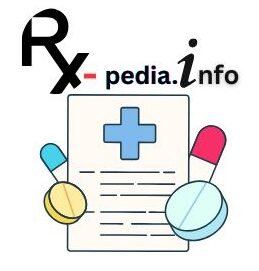
Table of Contents
Understanding Sinus Infections and Treatment Options
Sinus infections, also known as sinusitis, are common health issues affecting millions. In the United States alone, around 30 million cases of sinusitis are diagnosed each year. With such high prevalence, understanding the cause and treatment options becomes crucial.
When dealing with sinus infections, it’s vital to recognize that not all infections require antibiotics. Many sinus infections are viral, meaning antibiotics won’t help. A proper diagnosis by a healthcare provider is essential to determine the right treatment.
Which Antibiotic is Good for a Sinus Infection: When Antibiotics are Necessary
Antibiotics are only necessary if a bacterial infection is diagnosed. Signs indicating a bacterial sinus infection often include symptoms persisting longer than 10 days, symptoms worsening after initial improvement, or a high fever.
Common Antibiotics for Sinus Infections
Which Antibiotic is Good for a Sinus Infection: Amoxicillin: A First-Line Treatment
Amoxicillin is commonly prescribed as the first-line antibiotic for bacterial sinus infections. Typical dosages for adults range from 500 mg to 875 mg every 12 hours for about 5 to 10 days.
Common side effects may include nausea, diarrhea, and allergic reactions. It’s also critical to mention that it can interact with other medications, like blood thinners. Always consult your doctor about potential interactions.
Augmentin (Amoxicillin-Clavulanate): For Resistant Infections
For cases where standard treatments fail, Augmentin becomes an option. This combination drug helps fight off bacteria that resist amoxicillin alone. It is particularly useful for severe infections.
Side effects of Augmentin can include gastrointestinal discomfort, skin rash, and yeast infections. Patients should take precautions, especially if they have a history of allergies to penicillin.
Other Antibiotics (e.g., Doxycycline, Cefuroxime)
In some cases, healthcare providers may prescribe alternative antibiotics like doxycycline or cefuroxime. These antibiotics can be effective depending on individual circumstances. However, consulting with a doctor is essential to ensure the appropriate choice tailored to your specific situation.
When to See a Doctor for a Sinus Infection
Identifying when to seek medical help is crucial.
Recognizing Symptoms of a Bacterial Sinus Infection
Some key symptoms of bacterial sinus infections include:
- Persistent nasal discharge (often thick and greenish)
- High fever (typically over 101°F)
- Facial pain or pressure
- Bad breath
Differentiating Between Viral and Bacterial Infections
Viral sinus infections usually last less than 10 days and often improve on their own. In contrast, bacterial infections may linger longer and might show worsening symptoms.
The Risks of Untreated Sinus Infections
Failing to treat bacterial sinus infections can lead to severe complications, including meningitis or orbital cellulitis, which can threaten vision.
Alternative Treatments for Sinus Infections
While antibiotics may be necessary, many alternative treatments can provide relief.
Home Remedies for Symptom Relief
Effective home remedies include:
- Saline nasal irrigation to clear nasal passages
- Increased hydration to thin mucus
- Steam inhalation for congestion relief
Over-the-Counter Medications
Pain relievers, such as acetaminophen or ibuprofen, can alleviate pain and reduce fever. Decongestants may also help but should be used sparingly to avoid rebound congestion.
When Home Remedies are Insufficient
If symptoms persist despite home treatments, medical attention is necessary for further evaluation.
The Role of Your Doctor in Choosing the Right Antibiotic
Importance of Accurate Diagnosis
A proper diagnosis ensures the right antibiotic is prescribed. An accurate assessment can save time and reduce unnecessary medication use. “Choosing the correct treatment hinges on understanding the type of infection present,” says healthcare experts.
Factors Influencing Antibiotic Choice
Your medical history, allergies, and existing conditions will influence the choice of antibiotic. The growing concern of antibiotic resistance makes it even more critical to use antibiotics judiciously.
Following Doctor’s Instructions for Antibiotic Use
Adhering to prescribed dosages and durations is essential to avoid complications and resistance.
Preventing Sinus Infections
Practicing Good Hygiene
Implementing good hygiene practices can help prevent infections. Regular hand washing and avoiding contact with sick individuals are effective strategies.
Boosting Immunity
To enhance your immune system:
- Maintain a healthy diet rich in fruits and vegetables
- Get adequate sleep
- Manage stress levels
Addressing Underlying Allergies
Many sinus infections are triggered by allergies. Identifying and treating allergies can significantly reduce the frequency of sinus infections.
Conclusion: Effective Sinus Infection Management
In summary, understanding when to seek medical attention and the importance of accurate diagnosis is essential. Antibiotics can be effective but should be used responsibly. Numerous alternative treatments exist for symptom relief, and preventive measures can help reduce the risk of sinus infections.
Consult your doctor for any concerns regarding sinus infections or treatment options. Taking proactive steps can lead to better health outcomes and a more comfortable life.
FAQs: Which Antibiotic is Good for a Sinus Infection
What is the first choice antibiotic for sinusitis?
Amoxicillin is commonly prescribed as the first-line antibiotic for bacterial sinus infections
Do I need antibiotics if I have a sinus infection?
When dealing with sinus infections, it’s vital to recognize that not all infections require antibiotics. Many sinus infections are viral, meaning antibiotics won’t help.
Is Augmentin good for a sinus infection?
Amoxicillin and Augmentin are both first-choice antibiotics for treating most bacterial sinus infections











1 thought on “Which Antibiotic is Good for a Sinus Infection?”